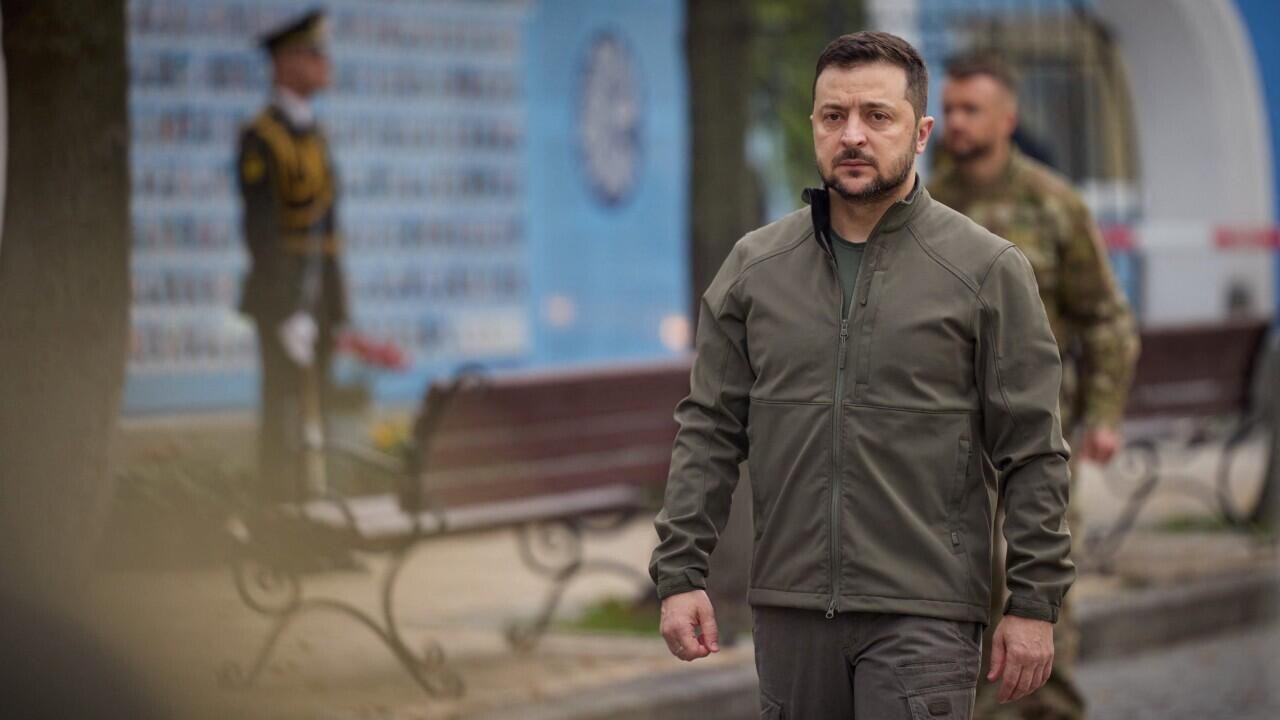The Contact Group for Ukraine, which integrates the country’s Western allies in its war against Russia, meets at the military base in Ramstein, Germany. Despite Zelensky’s expressed urgency for access to Leopard 2 tanks, the allies have failed to reach an agreement. For now, Berlin has only undertaken to “review” the availability of these vehicles.
It is the headquarters of the US Air Force on European soil. Ramstein, in southeastern Germany, is home to more than 50,000 US citizens, including 8,000 soldiers. It is, without a doubt, the perfect place to stage the union of the West.
This Friday, January 20, is the day set for the meeting of the Contact Group for Ukraine. In Ramstein are NATO Secretary General Jens Stoltenberg, US Defense Secretary Lloyd Austin, and their counterparts from Ukraine, Germany, the UK and Poland, among others.
With the start of the second year of the war between Moscow and kyiv in sight, the meeting could determine Ukraine’s strategy against the Russian invasion and its chances of victory or defeat.
What is decided in Ramstein?
When Russia began its invasion of Ukrainian territory on February 24, the Kremlin’s military forces disproportionately outnumbered kyiv’s in all respects: infantry, weapons, aviation, tanks.
If Ukraine has managed to stop the invasion, it has been largely thanks to the enormous humanitarian and military aid it has received from its Western allies. However, the conflict seems to have reached a stalemate after a fierce Russian advance in the first few months and a relatively successful counter-offensive by Ukraine in late 2022.
For the moment, the front lines seem stable for weeks, leaving aside some Russian victories such as the retake of Soledar in December.

That is why, while side and side take a breath, Ukraine and its allies decide the next steps in providing military support. The meeting in Ramstein of the defense leaders of European countries and the United States together with NATO will try to iron out the differences between the partners and agree on a common strategy.
What kind of support is Ukraine asking for?
kyiv has been clear from the start. They need help and they need it fast. Ukrainian President Volodimir Zelensky, who has already spoken at the meeting, was concise: “We greatly appreciate all the support received so far and their anti-aircraft defense systems, but we need artillery and tanks.”
“We have to act quickly, time must be on our side, it must be one of our weapons, just like armored fighting vehicles and air defense systems,” the president said.

According to the country’s defense minister, kyiv’s three priorities are more air defense systems, “weapons for offensive operations” and a “systematic supply of ammunition”.
While the first and third demands seem relatively satisfied, the second is still the subject of debate, especially around tanks. Both Poland and Finland have offered to send the Leopard 2 tanks, something Ukraine has long sought, but being German-made they need the green light from Berlin to do so. Something that, for now, has not yet materialized.
Who has announced more aid for Ukraine?
Several countries have already responded to kyiv’s call. On Thursday, the Pentagon announced a new aid package worth $2.5 billion, which includes armored cars and anti-aircraft defenses, as well as millions of different types of ammunition.
Finland did the same this Friday, with military aid valued at 400 million euros, although it did not specify the type of weapons it will deliver. “Ukraine continues to need support to defend its territory. Finland will supply it with heavy artillery and ammunition,” the Defense Ministry explained in a statement.
The announcements undoubtedly put another degree of pressure on Germany. The same is true of the statements by the Polish Prime Minister, Mateusz Morawiecki, who assured last Thursday that if Berlin does not give permission to send the Leopard 2, Warsaw “will do the right thing.”
For now, Germany had conditioned giving the go-ahead to the tanks if the United States also sends Abrams main battle tanks, something Washington rejects for logistical reasons.
Why is Germany reluctant to hand over the tanks?
Berlin’s policy in recent decades has been to maintain a relatively anti-war position on European soil due to its history and disastrous participation in the two World Wars that devastated the old continent in the last century.
In fact, Germany was slower than the rest of its European partners to send military aid to Ukraine after the start of the invasion, something that already earned it criticism at the time.

Since then, Berlin has opted to supply defensive material, but giving the green light to supply offensive material is perhaps too long a step for Olaf Scholz, the German chancellor, who must manage the economy of the European country most dependent on Russian gas.
Nevertheless, according to a calculation by the Kiel Institute for the World EconomyGermany is the second country after the United States that has spent the most on military support for Ukraine: 2,340 million dollars.
What does Russia respond to the meeting in Ramstein?
Kremlin spokesman Dmitri Peskov referred to the Ukraine Contact Group meeting in his daily press briefing. He insisted that sending heavy weapons into the country will have “negative consequences.”
However, he stressed “not to exaggerate” the effect of this military aid on the ground, assessing that it will not unbalance the forces sufficiently in favor of Ukraine. According to Peskov, the new supplies “will give Ukraine more problems” but “will not change anything as far as Russia’s progress towards its goals is concerned.”
But beyond Peskov, the dialectical battle intensified with the statements of former president Dmitri Medvedev, who recalled that “the defeat of a power can provoke a nuclear war.”





![[Img #74664]](https://thelatestnews.world/wp-content/uploads/2024/12/James-Watson-The-controversial-genius-behind-the-double-helix-150x150.jpg)






